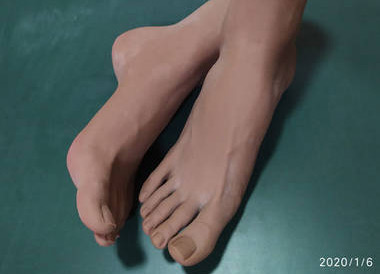How Should We View Foot Fetish: A Comprehensive Perspective

Foot fetish, a sexual preference focused on feet, has been a topic that evokes diverse opinions and reactions in society. To determine whether it is a "terrible" thing, we need to approach it from multiple perspectives and with a comprehensive understanding.
From a psychological and scientific perspective, foot fetish is considered a paraphilia, which is a category of atypical sexual interests. However, it is important to note that having a paraphilia does not necessarily mean an individual is deviant or pathological in all cases. Many people with a foot fetish are able to lead normal, healthy, and productive lives without causing harm to themselves or others.
In cases where foot fetish is expressed within the boundaries of consent and legality, it can be seen as a personal sexual preference. Just like other forms of sexual expression or orientation, as long as it occurs between consenting adults and does not violate the rights and boundaries of others, it should be respected to a certain extent. For example, in a private and consensual relationship, if both partners are comfortable and accepting of foot-related interests and activities, it can be a part of their intimate and shared experiences.
However, when foot fetish leads to non-consensual, inappropriate, or harmful behavior, it becomes a serious issue. If an individual with a foot fetish forces their interest onto others without their consent, such as engaging in unwanted touching, harassment, or voyeurism, it crosses the line into illegal and unethical territory. This kind of behavior not only violates the rights and dignity of the victim but also has significant negative impacts on society's sense of safety and order.
Another aspect to consider is the social and cultural context in which foot fetish exists. Different cultures and societies have varying attitudes and beliefs about sexuality and sexual preferences. In some cultures, unconventional sexual interests may be more stigmatized and judged harshly, while in others, there might be more openness and acceptance within certain limits.
We also need to look at the individual's own experience and well-being. For some people with a strong foot fetish, if they feel ashamed, guilty, or distressed about their preference due to social pressure and stigma, it can have a negative impact on their mental health and self-esteem. In such cases, psychological counseling and support can be helpful for them to better understand and manage their feelings and behaviors. In conclusion, whether foot fetish is a "terrible" thing depends on how it is expressed and manifested. When it is kept within the realm of consent, legality, and respect for others, it can be just a personal preference. But when it leads to harmful and inappropriate actions, it is a matter of concern and requires intervention and correction. Society should strive for a more informed, understanding, and inclusive approach towards diverse sexual preferences while also firmly safeguarding the rights and boundaries of every individual.
Share this page to your social media:
